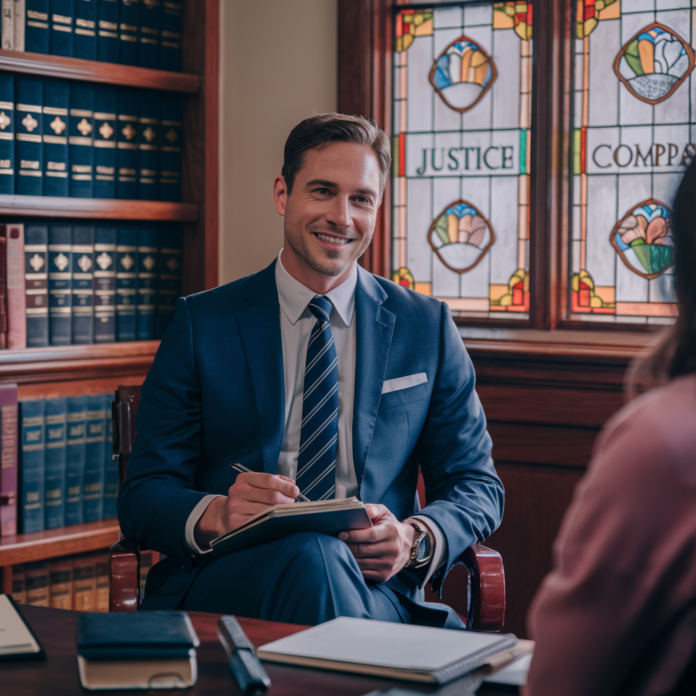Probate is the legal process of administering a deceased person’s estate. This includes verifying the will, paying debts and taxes, and distributing the remaining assets to beneficiaries. While it sounds straightforward, probate can be complex, particularly for larger estates or when disputes arise.
A probate lawyer can ease your family’s burden, making the process smoother and less stressful. This guide will explore various ways a probate lawyer can help, ensuring your family navigates this difficult time with expert support.
1. Expert Guidance Through Complex Legal Procedures
Probate laws vary by state and can be intricate. For example, a Colorado Estate Matters Ltd – Denver probate lawyer understands these laws and ensures compliance, reducing the risk of costly mistakes. They can interpret and apply state-specific regulations, making sure every step adheres to legal standards. Their expertise helps navigate unforeseen legal issues that could otherwise delay the process. By providing clear explanations, they ensure you understand each phase of the process.
2. Efficiently Handling Paperwork
Probate involves extensive paperwork, from filing petitions to submitting tax returns. A probate lawyer manages this paperwork, ensuring everything is filed correctly and on time. They are familiar with the necessary forms and documentation required by courts. This reduces the likelihood of errors that could result in delays or legal challenges. Their organizational skills ensure that all documents are submitted within deadlines, keeping the probate process on track.
3. Protecting the Estate from Legal Challenges
Disputes can arise over the validity of the will or the distribution of assets. A probate lawyer can defend the estate against such challenges, preserving the deceased’s wishes and preventing family conflicts. They can provide evidence and legal arguments to uphold the will’s validity in court. Their experience in mediation can also help resolve disputes outside of court, saving time and reducing stress.
4. Identifying and Valuing Assets
Accurately identifying and valuing the deceased’s assets is crucial. A probate lawyer can facilitate this process, often working with appraisers to ensure accurate valuations. They can identify hidden or overlooked assets that need to be included in the estate. Their network of professionals, such as real estate appraisers and financial advisors, ensures comprehensive asset valuation. This thorough approach helps in fair distribution and accurate tax assessments.
5. Managing and Settling Debts and Taxes
A probate lawyer ensures that all debts and taxes are paid from the estate. They can negotiate with creditors and find ways to minimize tax liabilities, preserving more of the estate for the beneficiaries. Their expertise in estate law helps identify legitimate debts and challenge any questionable claims. They can also advise on tax strategies to reduce the estate’s tax burden legally.
6. Facilitating Communication Among Heirs
Clear communication among heirs is vital to prevent misunderstandings and disputes. A probate lawyer can act as a neutral party, facilitating discussions and ensuring everyone understands the process. They can explain complex legal terms and procedures in a way that is easy to understand. Their impartial position helps mediate any disagreements that may arise among heirs.
7. Speeding Up the Probate Process
With their expertise, a probate lawyer can expedite the process, reducing the time it takes to settle the estate. This helps beneficiaries receive their inheritances more quickly. They know how to avoid common pitfalls that can cause delays. Their familiarity with court procedures ensures that all filings and hearings proceed smoothly.
8. Providing Emotional Support and Objectivity
Dealing with probate while grieving can be emotionally taxing. A lawyer provides an objective perspective, helping your family make informed decisions without being overwhelmed by emotions. They offer a steady, experienced hand during a time of emotional upheaval. Their support can alleviate some of the stress associated with legal proceedings.
9. Representing the Estate in Court
If probate requires court appearances, a lawyer can represent the estate, ensuring legal procedures are followed and the estate’s interests are protected. They present the case clearly and persuasively to the judge. Their legal knowledge helps them respond effectively to any challenges from other parties.
10. Handling Complex Estates
Larger or more complex estates can involve numerous assets, properties, and investments. A probate lawyer has the expertise to handle these complexities, ensuring all aspects of the estate are managed correctly. They coordinate with various professionals, such as accountants and financial advisors, to manage the estate effectively. Their experience with complex estates helps them anticipate and solve potential issues. This comprehensive management ensures that all assets are properly accounted for and distributed.
11. Ensuring Fair Distribution of Assets
A lawyer ensures that assets are distributed fairly and according to the will or state law, preventing potential conflicts among heirs. They verify that each beneficiary receives their rightful share. Their impartiality helps prevent accusations of favoritism or unfairness.
12. Offering Mediation Services
If disputes arise, a probate lawyer can offer mediation services, helping families resolve conflicts amicably without lengthy court battles. They provide a neutral ground for discussions, facilitating constructive dialogue. Their mediation skills help find solutions that satisfy all parties involved. By resolving disputes out of court, they save time, money, and emotional stress for the family.
13. Providing Peace of Mind
Knowing that a professional is handling the probate process can provide peace of mind during a difficult time. Your family can focus on grieving and healing rather than worrying about legal issues. The lawyer’s expertise and experience provide confidence that the estate is being managed correctly. This assurance helps reduce anxiety and stress during an already challenging period.
14. Assisting with Trust Administration
If the deceased had a trust, a lawyer could assist with trust administration, ensuring the trust is managed according to its terms and legal requirements. They ensure that the trustee fulfills their duties correctly and legally. Their guidance helps prevent mistakes and mismanagement of the trust. By overseeing the trust administration, they ensure that the trust benefits the intended beneficiaries as planned.
15. Navigating Special Circumstances
Special circumstances, such as blended families, minor beneficiaries, or international assets, can complicate probate. A lawyer has the knowledge to navigate these challenges effectively. They understand the unique legal considerations of each situation. Their experience with similar cases allows them to handle these complexities smoothly.
The Bottom Line
From managing legal procedures to providing emotional support, their expertise ensures a smoother, less stressful process. By hiring a probate lawyer, your family can focus on remembering your loved one and healing, knowing that the estate is in good hands.












